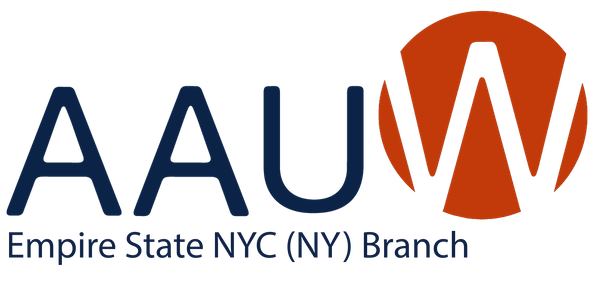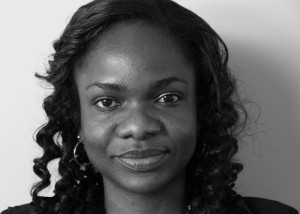Mwaka first became aware of AAUW as a source of funding in 2010 from her advisor Dr. Jennifer Burrell. She had just met her as her new advisor and it was during their second or third meeting that she gave her a list of scholarships/awards to apply for and AAUW’s International Fellowship was one of them.
Mwaka will remain involved through her work with underserved communities. She hopes to create networks with organizations working towards the advancement of women. She hopes to stay connected by attending conferences while she is here in the U.S. and participating where and when it is possible for her to do so.
The fellowship was granted at the right time because she was just about to complete the final year of her funding when she received the news that she had received the award. As an international student, the AAUW has really been a blessing in many ways. Mwaka now advanced to candidacy and working on her research and the fellowship has helped her a great deal in this regard. It provided more momentum.
Mwaka’s primary objective is to conduct her doctoral research on the extent to which refugee women access resources available to them. She will write her dissertation thereafter and she hopes to graduate in the spring of 2014. She would like to work and gain more experience in designing, developing and implementing projects in developing communities that help to improve access to education and employment.
Mwaka will use her research for developing and understanding her topic and its related issues such as human rights and gender equity. It is also important for her professional growth. It is also helping her learn more skills on how to develop her own ideas. She is also making some discoveries while conducting her research on challenges refugees face and option available to them. She will use her research to publish these findings that she is making. Mwaka’s networks are also growing because of the research. This is providing opportunities to advance her career.
Her 3-5 year goal is to complete her graduate training and further establish her professional career. She will be working and gaining more experience in an organization (this can the in government, private sector and key development organization in civil society including NGOs, foundations and research centers, or faith-based organization) that creates opportunities for the poorest people and improve development effectiveness and sustainability.
This past summer Mwaka worked as an intern at the United States Committee for Refugees and Immigrants (USCRI).
She has been part of a team conducting a pilot project aimed at training Karen Women from Burma. There have been reports of a high number of domestic violence incidents in the Karen community. The Karen refugee women of Burma residing in Albany have an informal support network but many are victims of domestic violence and they face numerous cultural barriers in accessing supportive services. The United States Committee for Refugees and Immigrants (USCRI) has partnered with Equinox and the New York State Coalition against Domestic Violence (NYSCADV) to create a and implement a culturally-tailored training on domestic violence. The program is aimed to increase women’s knowledge of their rights in the U.S. and options and services that can help increase their safety and their children’s safety.
Existing programming offered by regional Domestic Violence advocates is not tailored to connect with women from a cultural background so different from the mainstream U.S. This program will aim to close that gap by designing a culturally-appropriate workshop through a collaborative process with refugee women leaders and professional advocates. This project is ongoing.
She is also part of a committee that was formed (by USCRI volunteers) a month ago to improve the process to connect refugees to their Medicaid managed care health plans and to primary care physicians and other providers (including dentists). The committee will help develop fail-safe process so that every refugee will:
Respond in a timely manner to all Department of Social Services (DSS) notices (e.g. notices to choose health plan and primary care provider, and notices to recertify.)
- Choose a health care plan in accordance with DSS requirements.
- Choose a primary care physician who is geographically accessible and offers, at a minimum, interpretation via telephone.
- Choose a dentist who is geographically accessible and offers, at a minimum, interpretation via telephone.
Mwaka’s time working with refugees has made her more aware of the challenges that refugees face when they come to live in the U.S.

